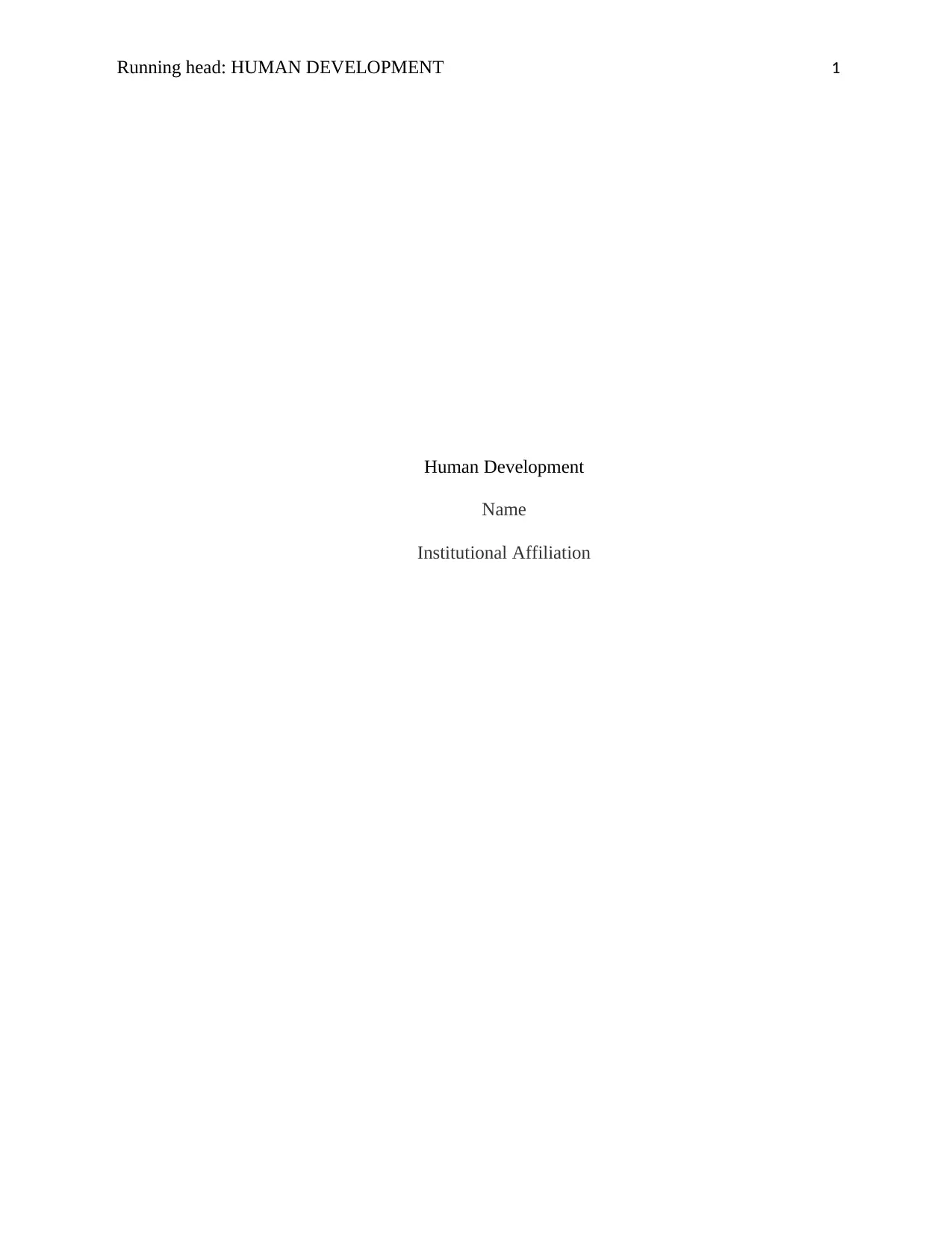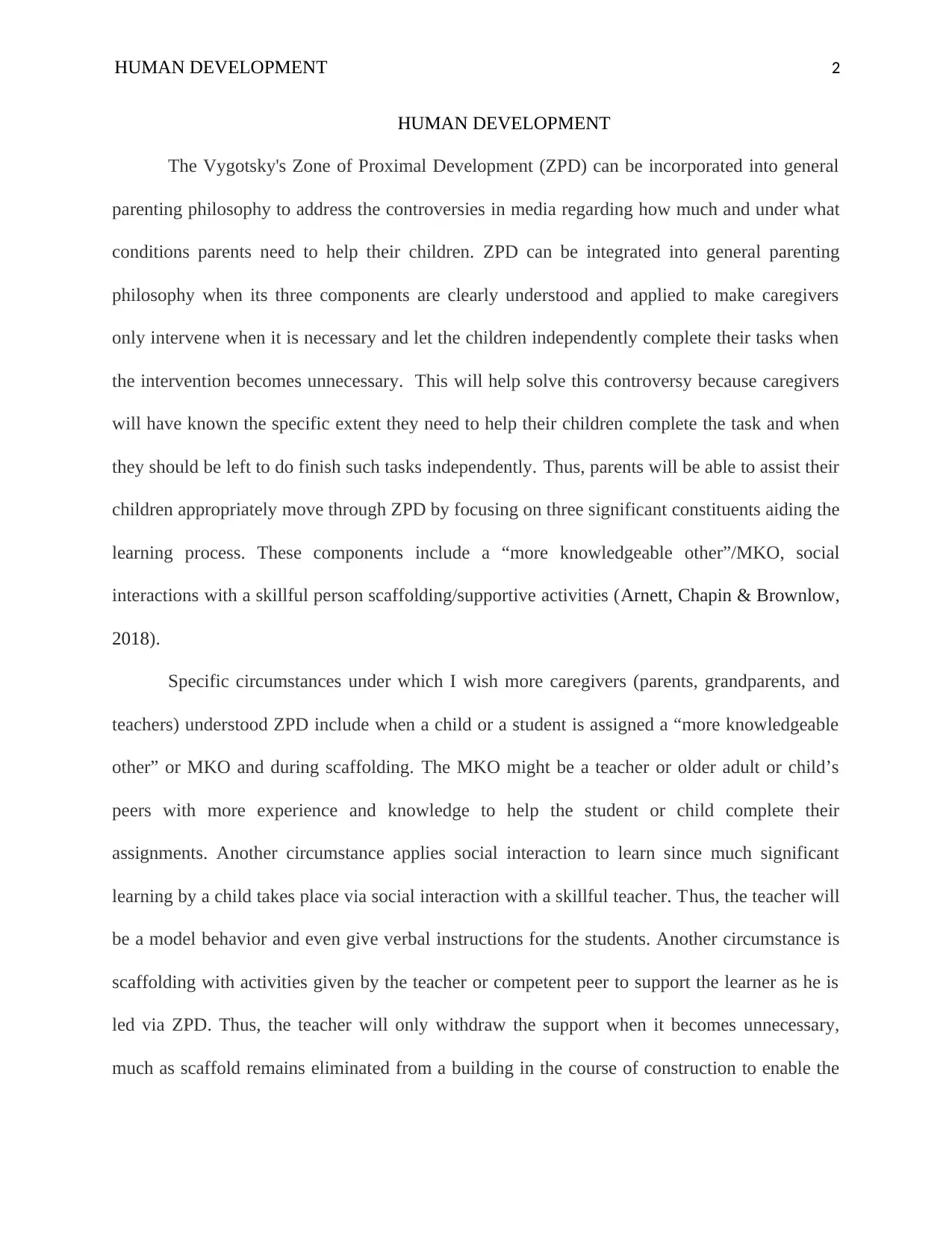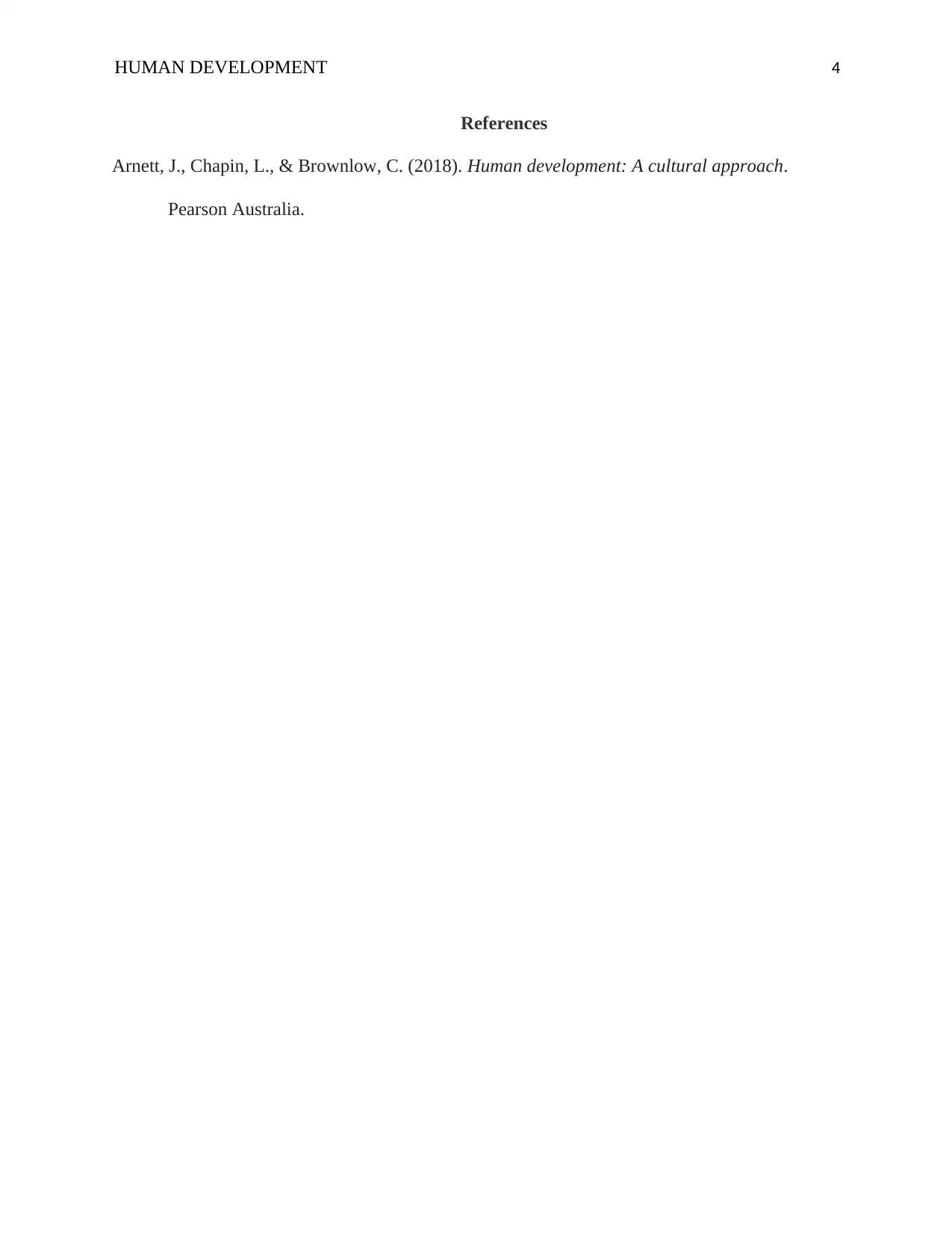Human Development: Examining ZPD's Impact on Parenting and Education
VerifiedAdded on 2022/08/27
|4
|408
|31
Homework Assignment
AI Summary
This assignment examines the application of Vygotsky's Zone of Proximal Development (ZPD) to parenting, focusing on how parents can effectively support their children's learning. The paper discusses the integration of ZPD principles into parenting philosophies, particularly in response to media influences. It emphasizes the importance of understanding the three key components of ZPD: the 'more knowledgeable other' (MKO), scaffolding, and social interactions. The assignment highlights how caregivers can provide appropriate support and intervention, allowing children to complete tasks independently when ready. The paper provides examples of how teachers and peers can act as MKOs and how scaffolding can be used to assist learners. The goal is to enable children to achieve tasks independently by gradually reducing support. The paper also includes references to relevant literature, such as Arnett, Chapin & Brownlow (2018), to support the discussion.
1 out of 4






![[object Object]](/_next/static/media/star-bottom.7253800d.svg)